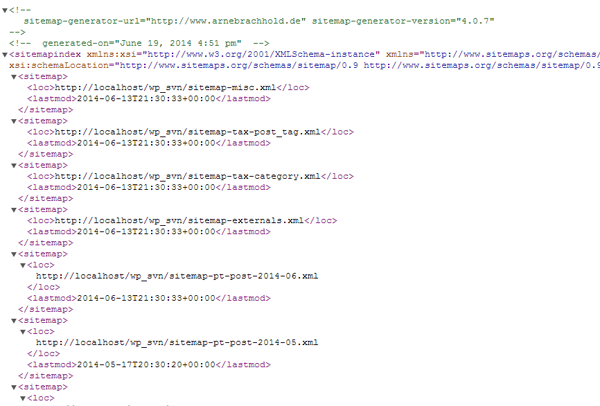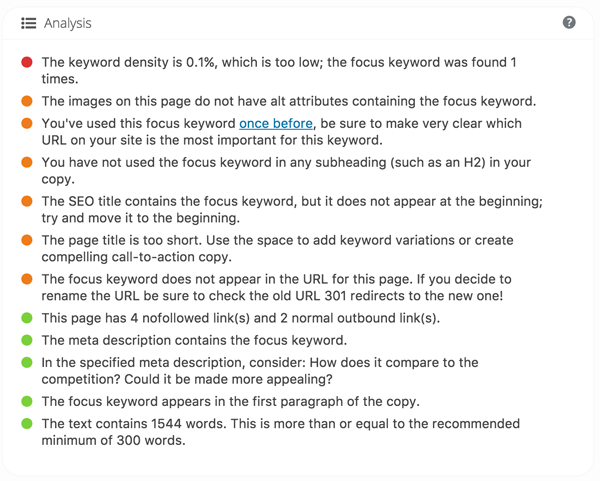9 Mistakes Site Owners Make In WordPress SEO (And How to Avoid Them)

The upsurge in WordPress use for both websites and blogs has led to increased competition for high ranking in search engine result pages (SERPs).
There are several SEO-friendly themes, such as Divi, Extra, Schema, Infinity, QOON, Gloria, Clementine and Noozbeat in the market and you could use SEO plugins like WordPress SEO by Yoast, SEMrush, Google Keyword Planner, KeywordTool.io, Open Site Explorer and LinkPatrol to improve ranking, but avoid the common mistake of believing that these will automatically lead to high ranking. More about WordPress plugins.
There are several other SEO mistakes that WordPress site owners make.
1. Failure to change the Permalink structure
Some people make the mistake of leaving the default WordPress URLs. The default URL is not very SEO or user friendly (it takes the form ?p= ). You can change it by going to Settings > Permalinks and then changing to either /category/post-name/ or /post-name/. Another URL changes that you should consider making is changing your website to start with WWW, such as www.wordpressexample.com as opposed to wordpressexample.com (do this by going to Settings > General).
2. Using a non-SSL site
Google announced in 2014 that it ranks HTTPS/SSL sites higher than HTTP/non-SSL sites. Although it stated that this only gives a minor improvement in ranking, you should try it with your WordPress site not only for SEO, but to also make your website secure and to attract visitors who only want a secure site.
3. Failure to Optimize Titles and Meta Description for SEO
Keyword optimization of content is one of the most important SEO tactics. Most website owners optimize the content and forget about the title. Optimizing the
Since search engines use the Meta description as a snippet in SERPs alongside the URL and the title, you should optimize it for search engines. Note that search engines only display the description if it has the keyword the searcher has searched for. Avoid the common mistake of using automated descriptions like the ones generated by the "All in One SEO" plugin and others to ensure your description is both visitor and SEO-friendly. Use the keyword ranking checker to get the best keywords for your title, description, URL and content.
4. Failure to use XML sitemaps
XML sitemaps tell search engines that your site has been updated. There are many .xml sitemap plugins available free of charge, a good example being the Google XML Sitemap. It will create and make regular sitemap updates automatically.

5. Failure to use Breadcrumbs
Breadcrumbs are the links you usually find above the title post and that look like Home >About>About WordPress SEO". You should use them because they enable search engines to identify your site's structure for easy crawling and they allow users to navigate your website much more easily. The breadcrumb should link to your homepage and the specific category the post is in.
6. Using Complex Code
Your template file will have a lot of CSS and JavaScript. You should move these to external CSS and JavaScript files to ensure your code is clean. A clean code is good for SEO since it allows users to cache the files on first load. You can also increase loading speed by ensuring the template does as few database calls as possible, by installing a caching plugin like W3 Total Cache, and by using a content delivery network (CDN) like MaxCDN.
7. Relying on the WordPress built-in canonical support
Google and other major search engines introduced the rel="canonical" element in 2009 as a way of fighting duplicate content. Although WordPress has built-in canonical link elements support on single pages and post, there has been slight bugs reported,whichmakes it unable to output canonical links on any other Web page. There are plugins that you can use to automatically get canonical link elements to all WordPress page types, a good example being the Yoast SEO plugin.

8. Failure to link to related posts
If you have good old posts, one way of ensuring search engines consider them is to link to them. Consider installing a related posts plugin, which will search through the database of your old posts to find those with the same subject as your new post and which will then link them to your new post. A good example is the Microkid's related post plugin, which allows you to manually pick related posts after the search is complete to ensure you pick the right posts. There are plugins that do this automatically by searching for certain keywords, but there is a risk of getting irrelevant posts that will bring out your post as spammy.
9. Failure to optimize comments
You should enable comments on your WordPress blog posts since they allow you to interact with your readers. You should encourage both positive and negative comments since readers will view a blog that only has positive comments with suspicion. You can bond with commenters by installing a comment redirect plugin that redirects people to a "thank you" page when they make their first comment. Optimize the comment links by changing from "No comments" to something like "No Comments yet, your thoughts are welcome."
Other common WordPress SEO mistakes to avoid include:
- Allowing for indexing the moment you start a new blog: To avoid indexing, use the "noindex" and "nofollow" tags.
- PageRank sculpting
- Failure to do responsive Web design to cater for mobile users
- Failure to update content regularly
- Broken links
- Following untrusted and useless/irrelevant links: If you have links in your content that do not have any SEO benefit, use the rel="nofollow" attribute to ensure your PageRank points are not reduced.
- Duplicate page types: If you have a category called "WordPress SEO Tips" and you have an article with the same name, search engines will see this as duplicate content. A solution to this is using) on the less important page.
- Failure to block spam comments
- Failure to disable author archives in single-author blogs
- Failure to optimize images
It is not sufficient to install an SEO plugin for improved WordPress search engine optimization. Try different tested SEO hacks and give your SEO campaign time to materialize. Monitor the campaign to ensure it is headed in the right direction.
Reference URLs
Read: https://techtage.com/31-ways-to-better-wordpress-seo/
Read: https://cms2cms.com/blog/seo-benefits-of-migration-to-wordpress/
Read: https://www.wordtracker.com/academy/content/wordpress/seo-wordpress-mistakes








